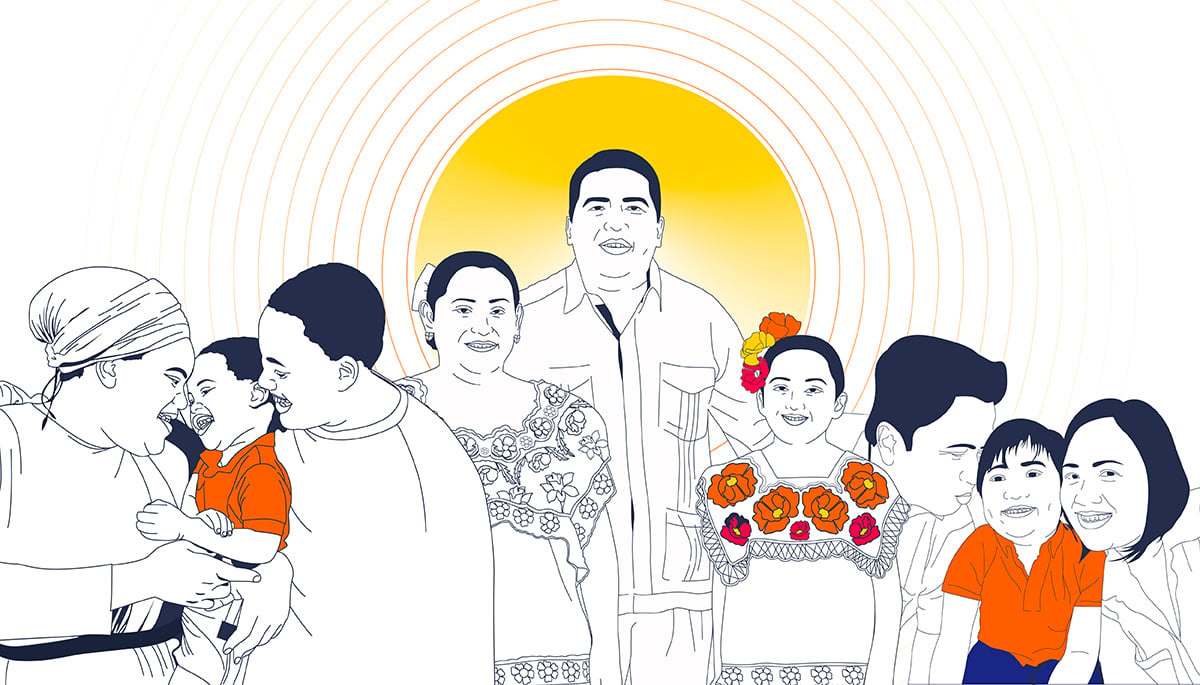Boldr has been at the forefront of a significant change in how it compensates its team members. In keeping with our goal to pay all our team members a living wage, we recently transitioned all our South African team members. Our shift toward paying a living wage is not just a trend but a transformation that carries substantial benefits for both individuals and the communities they call home. But what exactly is a living wage, and why is it so important?
Living wage vs. minimum wage
A living wage is not just a compensatory guideline for businesses, but a commitment to providing an individual with enough income to lead a decent life. It’s calculated based on the cost of living in a specific country, taking into account various essential components. These include food, water, housing, energy, transportation, education for children, healthcare, clothing, phone expenses (calls and data), a buffer for unforeseen expenses, and contributions to taxes and social security. In April 2023, the WageIndicator Foundation released a living wage baseline for South Africa.
It’s crucial to understand the key distinction between a living wage and the minimum wage. While an employer may choose to pay a living wage, there is no legal obligation to do so. In contrast, the statutory minimum wage is legally binding. However, a living wage serves as a powerful benchmark that employees and trade unions can use to negotiate for fairer compensation. Advocating for the payment of a living wage empowers employees to push for income that truly reflects the cost of living.
To bring the contrast into crisp focus, consider the following: The minimum wage in South Africa for individuals working a 45-hour week averages around R5,000 per month. The living wage benchmark across all regions for individuals working a 45-hour week ranges from R8,000 to R8,900 per month. There is a severe disparity between barely living and living comfortably.
But how does the living wage concept relate to the family structure? The living wage calculation is designed for a “Typical Family,” where at least one person works full-time. In the case of South Africa, that means a 45-hour workweek. The second adult in this “Typical Family” usually works between 3-4 days a week. The combined wages of both adults should be sufficient to provide a decent living. It’s important to note that this living wage represents the gross wage of the full-time working adult and does not include overtime, bonuses, or allowances.
How we implemented a living wage in our South Africa offices
We applied the lessons we learned when implementing a living wage to our teams in the Philippines, then looked at the total of our team members’ packages and how this fared next to the living wage baseline. We worked on understanding which team members’ total package fell below the prescribed living wage.
After a month and a half of collaboration between People Experience, Finance, and Impact, we determined that 1.4% of all our South African team members were eligible for a living wage adjustment based on the baseline we were using. As of 30 September, these team members have been moved into a living wage, which means 100% of all team members in South Africa are earning a living wage.
While this may represent a small part of our entire team in South Africa, we’re excited because it demonstrates how we deliver on our commitment to ensure that team members across all geographies earn a living wage so that their families can live decent and dignified lives.
The benefits of paying a living wage
Paying a living wage is not just a moral imperative but also a catalyst for positive change at the individual and community levels.
1. Improved quality of life for individuals
When team members receive a living wage, they experience a tangible improvement in their quality of life. Meeting basic needs becomes less of a struggle, reducing financial stress and anxiety. This translates into better mental and physical health, as well as improved overall well-being.
2. Strengthening communities
Paying a living wage has a ripple effect that extends far beyond the individual. Communities thrive when their members have more disposable income. Local businesses benefit because people can afford to spend more, stimulating economic growth. Additionally, reduced reliance on social safety nets can lead to lower public expenditures, which can then be redirected toward community development initiatives.
3. Increased loyalty and productivity
Companies that pay a living wage often see increased loyalty and productivity from their teams. Team members who feel valued and fairly compensated are more likely to be engaged and motivated at work. This, in turn, can lead to higher job satisfaction and reduced turnover, resulting in cost savings for businesses.
4. Attracting and retaining talent
Employers who offer a living wage can attract and retain top talent. Skilled individuals are more likely to choose and stay with companies that prioritize fair compensation. This not only enhances a company’s reputation but also fosters a culture of excellence.
Boldr’s journey toward paying a living wage is a shining example of a company that recognizes the benefits of such a commitment. By ensuring that its team members in South Africa receive a living wage, they are not only fulfilling a moral obligation but also contributing to the well-being of individuals and the prosperity of their local communities.
Paying a living wage is a powerful force for positive change, benefiting both individuals and the communities they belong to. It’s a step toward a fairer and more prosperous future, where everyone can thrive. As Boldr and other companies take steps in this direction, they lead the way toward a world where dignity, fairness, and well-being are at the forefront of the most basic employment practices.
As a certified B Corp, we pride ourselves in partnering with companies who share our impact-driven values, as well as our commitment to drive positive change. If you are looking for an outsourcing partner that strives for excellence while keeping a sharp eye on its Impact goals, then reach out to us.
We also want to acknowledge the individuals and groups who made this endeavor possible: Professor Ines Meyer from the University of Cape Town and the Living Wage Coalition of South Africa and Bernard Gouw who leads B Lab’s Social Standards and Living Wage work. Both have been instrumental in helping us understand living wages deeper, particularly in the context of South Africa.
James Fouche is the Content Manager at Boldr, as well as an author and a columnist. He is passionate about sharing his love of reading and writing with others.


